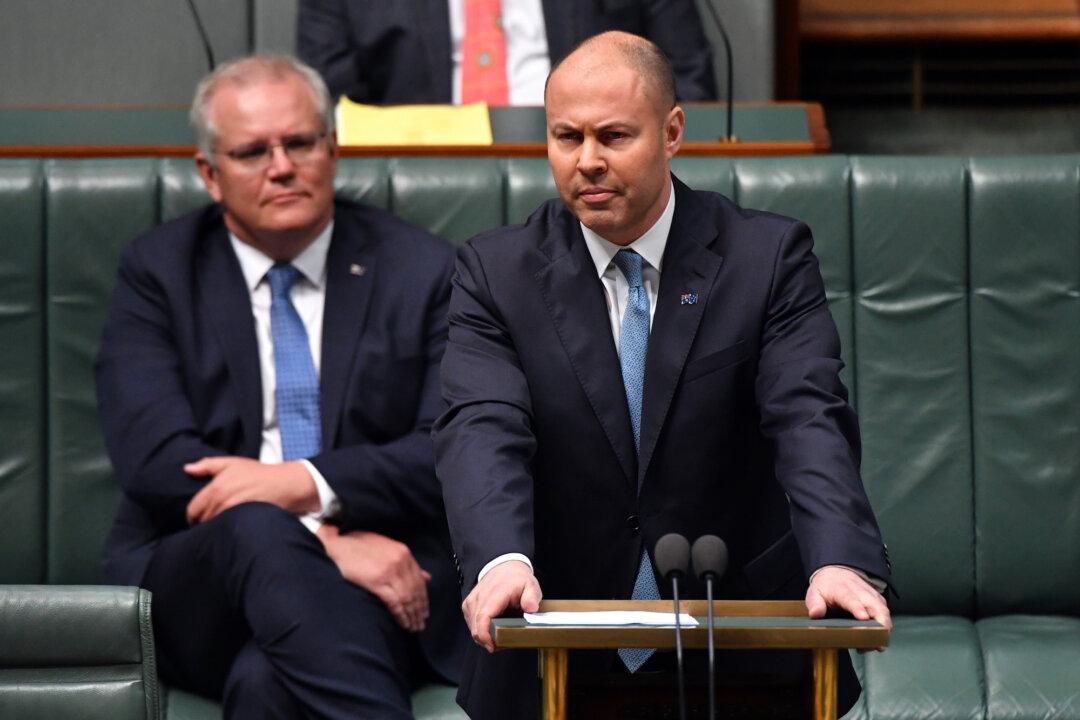Treasurer Josh Frydenberg on Tuesday laid out the Morrison government’s budget that he said would offset the CCP virus recession and steer the country back to prosperity to secure its future.
Delivering the budget at Parliament House, Frydenberg noted that protecting Australia from the CCP (Chinese Communist Party) virus has seen the budget deficit grow to $213.7 billion this year. Net debt has also increased to $703 billion—or 36 percent of GDP—but is not expected to peak until June 2024 when current estimates put it at $966 billion—or 44 percent of GDP.




